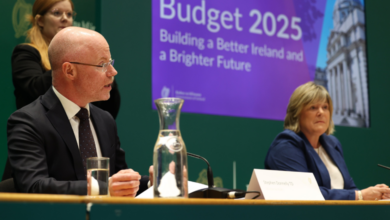Supported decision-making
 A long-awaited Bill to reform 19th century law on decision-making and legal capacity is due to be published during the current Dáil term.
A long-awaited Bill to reform 19th century law on decision-making and legal capacity is due to be published during the current Dáil term.
Laws dating back to 1871 are set to be repealed by the forthcoming Mental Capacity Bill, which will replace the ward of courts system with a new decision-making framework for vulnerable people.
Under the current system, which derives from the 1871 Lunacy Regulation (Ireland) Act, a person can be made a ward of court if they are unable to manage their assets due to mental incapacity. If the High Court makes someone a ward of court, a committee is appointed to control assets (and potentially their personal affairs) on a ward’s behalf.
This system is due to be replaced by one underpinned by ‘supported decision-making’ by the person concerned. Courts will be allowed to make declarations on capacity and appoint guardians for people in circumstances where they need assistance. An office of the public guardian is to be established, which will supervise personal guardians and those who receive enduring powers of attorney. Minister of State Kathleen Lynch, who is responsible for the legislation, has said that the new law will see a shift from “the current all-or-nothing approach to a flexible, functional one whereby capacity is assessed on an issue and time-specific basis.”
Reform is needed to ratify the UN Convention of the Rights of Persons with Disabilities, which the Government signed in 2007. It is needed specifically to comply with Article 12, which recognises that persons with disabilities “enjoy legal capacity on an equal basis with others in all aspects of life.” The Law Reform Commission produced a report on vulnerable adults and the law in 2006, the main elements of which were accepted in the general scheme of a mental capacity Bill published in 2008.
The Oireachtas Justice Committee held hearings over two days in February from stakeholders as it prepared a submission on the proposed Bill.
Dr Simone Carton, a clinical neuropsychologist, said that at present professional opinions on capacity are not accepted with sufficient nuance by the courts. “One either has or does not have capacity. It is being presented as a black and white phenomena but it is not. It is many shades of grey,” she told the committee.
Persons with dementia would be the largest single user group of the capacity legislation, Alzheimer Society of Ireland Chief Executive Maurice O’Connell stated. He said that as people with dementia will reach a stage where they are unable to exercise capacity, there needs to be an “accessible, flexible and accountable” system of substituted decision-making. Amnesty International’s Executive Director Colm O’Gorman pointed out that supported decision-making does not have to be resource-intensive, citing the example of representation agreements in British Columbia.
Among the other recommendations made by witnesses were:
- an advanced directives provision (on decision-making);
- more detail on statutory supports, training and information for personal guardians;
- reform or repeal of section 5 of the Criminal Law (Sexual Offences) Act 1993, which allows consenting sexual relations between people with intellectual disabilities to be considered an offence;
- a provision for advocacy, for people without a family or support network to help them make decisions; and
- a change in the Bill’s title from mental capacity to legal capacity.
Lauri Sivonen, adviser to the Council of Europe Commissioner on Human Rights Thomas Hammerberg, also addressed the committee. He stated that the traditional ‘best interests’ model demonstrates “the paternalistic view of trying to determine what the best interests of a person are, even of a person who can perfectly well decide for himself or herself what his or her best interests are.” The philosophy and obligations of the UN Convention, however, “are clear that the starting point is that the person has capacity.”





